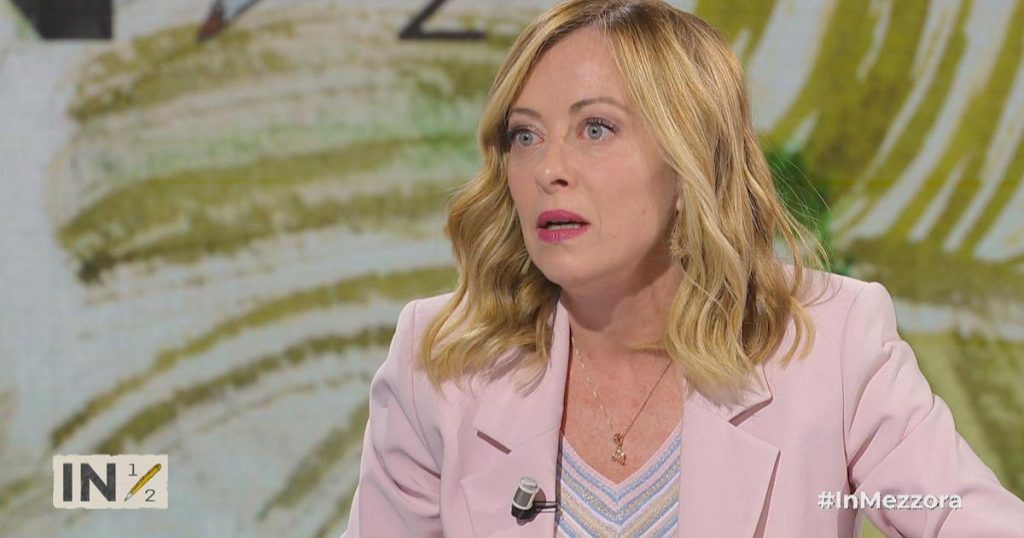In a recent interview on Raitre’s show “In mezz’ora” with Monica Maggioni, the Prime Minister, Giorgia Meloni, outlined her political goals ahead of the European elections on June 8 and 9. She emphasized that she is not in favor of giving approval to extreme right-wing movements like Marine Le Pen’s Rassemblement National for strategic alliances in the new Strasbourg assembly. Meloni’s main objective is to build an alternative majority to the one that has been in power in recent years, ensuring that the left is also pushed into opposition in Europe. She stressed the need for a strong Europe, free from rainbow coalitions that only lead to compromises that weaken the continent.
Touching on the current Middle East conflict, Meloni expressed the government’s efforts towards a sustainable ceasefire, the release of hostages, and preventing Israeli entry into Rafah. She highlighted the importance of strengthening the Palestinian National Authority to build a path towards peace, emphasizing the need to discuss a Two-State solution to end the crisis. Meloni also condemned the lack of empathy for Israeli civilian victims, pointing out the emergence of latent antisemitism. In response to NATO Secretary General Jens Stoltenberg’s comments about using Western weapons to target military objectives in Russia, Meloni urged caution, emphasizing the importance of NATO’s support for Ukraine to achieve peace.
Meloni criticized the left for using the green transition as an attack on citizens’ freedom, delivering mandates that do not serve their interests. She highlighted the agreement with Albanian Prime Minister Edi Rama to establish two migrant reception centers across the Adriatic as a crucial step towards combating human traffickers and managing migration flows. She pointed out the contradictions in the criticisms from the Democratic Party, noting that the project will pave the way for a more effective EU migration policy.
Regarding economic issues, Meloni acknowledged the challenges posed by the Superbonus program and the need to uphold government commitments amidst financial constraints. She also addressed the situation in Liguria involving the arrested regional president Giovanni Toti, stating that only Toti could decide on his resignation, given his understanding of the truth and his concern for citizens. The discussion then turned to the “premierato”, a proposed reform for the direct election of the Prime Minister, which Meloni viewed as a mechanism to empower citizens in choosing their leaders and ensuring stability.
Meloni reiterated her openness to dialogue and emphasized that the reform was developed in consultation with various political forces. She defended the role of the President in the reform and clarified her earlier statement about “o la va o la spacca” (sink or swim) in Trento, stating that she is not afraid of the referendum on the reform, as she will accept the judgment of the Italian people at the end of her term. She expressed confidence in the democratic process and the importance of respecting the decisions made by the electorate.


